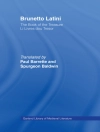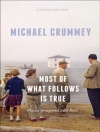This book explores the ways in which the two leading sensation authors of the 1860s, Mary Elizabeth Braddon and Wilkie Collins, engaged with nineteenth-century ideas about personality formation and the extent to which it can be influenced either by the subject or by others. Innovative readings of seven sensation novels explore how they employ and challenge Victorian theories of heredity, degeneration, inherent constitution, education, upbringing and social circumstance. Far from presenting a reductive depiction of ‘nature’ versus ‘nurture’, Braddon and Collins show the creation of character to be a complex interplay of internal and external factors. Drawing on material ranging from medical textbooks, to sociological treatises, to popular periodicals, Creating character shows how sensation authors situated themselves at the intersections of established and developing, conservative and radical, learned and sensationalist thought about how identity could be made and modified.
Tabela de Conteúdo
Introduction
Part I: Self-control, willpower and monomania
1. Basil and No Name
2. John Marchmont’s Legacy
Part II: Heredity and degeneration
3. The Lady Lisle
4. Armadale
Part III: Education, environment and circumstance
5. Man and Wife
6. Lost for Love
Conclusion
Index
Sobre o autor
Andrew Smith is Professor of English Studies at the University of Glamorgan where he is Co-Director of the Research Centre for Literature, Arts and Science (RCLAS)












